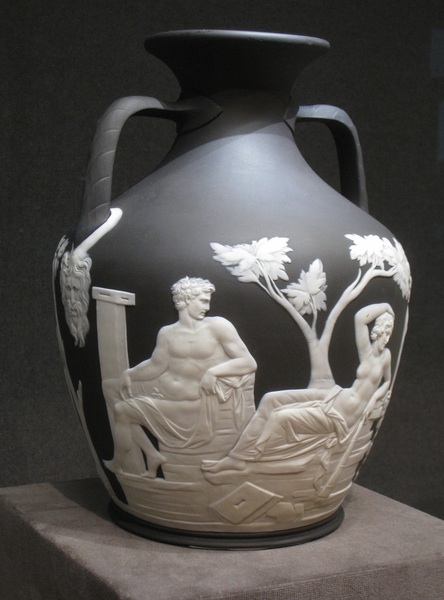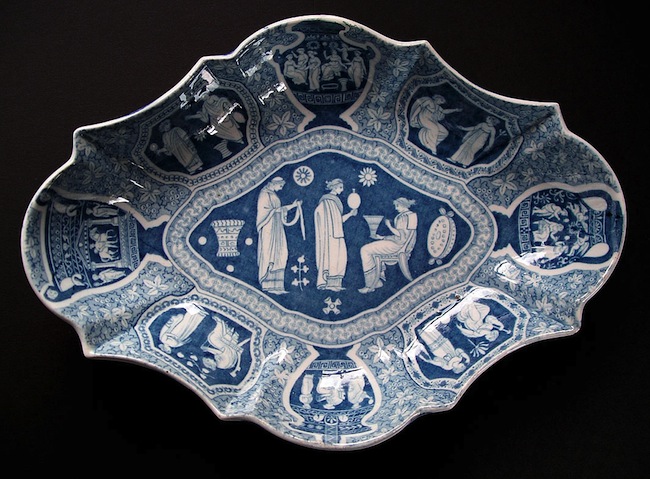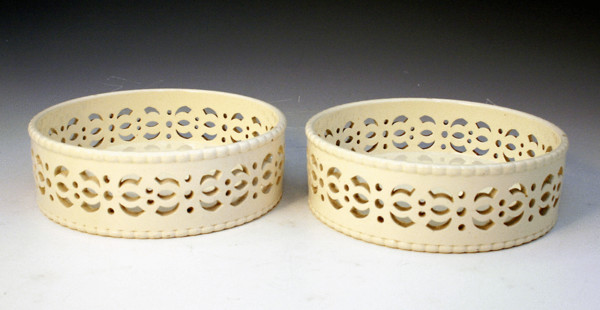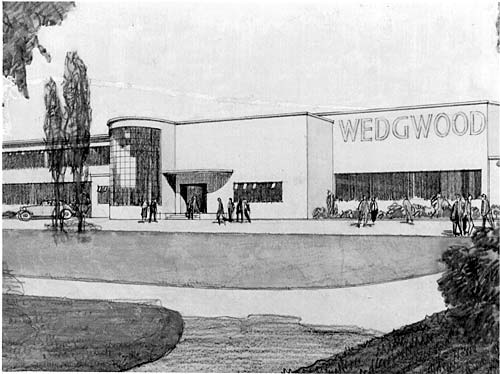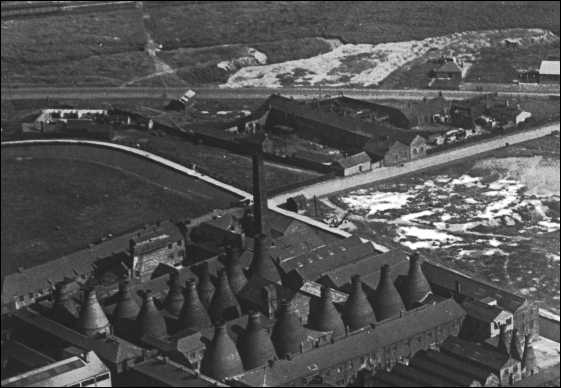Famous manufacturer of earthenware and porcelain at Burslem then Etruria and lastly Darlaston.
Note, most of the products are now made out of England and the Company has just been bought by a firm in the US. What will happen now is anybody’s guess.
Wedgwood has a long history. It all began with the father of Josiah Wedgwood. His father owned a small kiln in the area known then, as well as now, as Staffordshire potteries. Josiah born in 1730 was the youngest of a large family. After his fathers death the pottery was passed to William, Josiah’s oldest brother. At the age of eight, Josiah went to work for his brother.
When Josiah was fourteen, he apprenticed for his brother for the next seven years. During that time, he learned the trade secrets from the master potters of Staffordshire.
Once Josiah Wedgwood completed his apprenticeship with his brother, he became a partner with two others at Cliff Bank,Stoke. The partnership lasted for only a little over a year. He then signed an agreement with Thomas Whieldon of Fenton. Whieldon was a well-known master potter and was considered to be the ‘father’ of British pottery. He produced salt glazed earthenwares and Creamwares. His was considered one of the largest potteries in Staffordshire. Josiah had an agreement with Thomas Whieldon which allowed him to do experimental work and keep the results to himself. He only stayed there for a few years.
In 1759 he started his own business at the Ivy House pottery in Burslem, England. He produced utilitarian earthenware until 1770 when he opened his new facilities at Etruria. There he began producing ornamental-type wares. It was there that the introduction of Basalt and Jasperware was made. Jasperware is an unglazed stoneware decorated with figures in relief. It can be found in blues, greens, white, yellow, black, and lilac. A combination of colors can also be found occasionally. Jasperware is produced today and is one of the most widely recognized.
Athough Josiah Wedgwood’s Jasperware was well accepted, his creamware was more of a success. Since it could be easily potted and was lighter in weight, the cost of transportation was much less. Because of the lesser costs, he could offer “chinaware” at affordable prices. Queen Charlotte was so pleased with it, that she ordered a complete service with the accessories. In 1766, Josiah Wedgwood was appointed “Potter to Her Majesty, the Queen”. This allowed Josiah to call his china service “Queens Ware”.
During some of his travels, he met Thomas Bentley, another potter. They eventually became partners. A new “state of the art” factory was built on a parcel of land of 350 acres, just a few miles from his Burslem factory. There is where he perfected a new black body he called “Basaltes”. Thomas Bentley became a valuable friend and ally. He died in 1780. Josiah married his third cousin, Sarah Wedgwood and between them had seven children (four girls and three boys). After turning over the business to his sons, Josiah Wedgwood died January 3, 1795.

